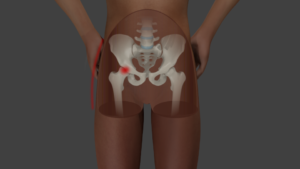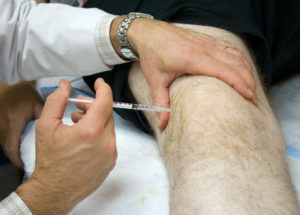Months before your actual total hip replacement surgery date, you will begin preparing for the procedure. Good physical health and mental well-being are important for a successful total hip operation. In addition, you will need to get your upper body strength to use crutches or a walker after surgery. Performing strengthening exercises will make it easier to recover after surgery.
Meeting with the Orthopedic Surgeon
When you go to see the orthopedic surgeon, he will take a detailed medical history and conduct a physical examination. The surgeon will also inquire about your current knee pain and symptoms to decide if or not you qualify for surgery. Working along with your primary care doctor, the surgeon will determine if you are fit for surgery, which will involve pre-surgical testing (EKG, lab work, chest x-ray, and urinalysis). Because smoking delays wound healing, the surgeon will have you stop at least 5 weeks before your scheduled total hip replacement.
Many solutions and medications are used during a total hip replacement, and the orthopedic surgeon will make sure you are not allergic to anything. Certain medications and supplements can thin the blood, so be sure to notify the doctor of what you are taking. The blood-thinning agents are to be held for 3-6 days before the procedure. In addition, you may need a blood transfusion during or after surgery. If you wish, you can donate your own blood to the blood bank before your procedure.
 Meeting with the Physical Therapist
Meeting with the Physical Therapist
A physical therapist will come to your home before surgery to assess the rehabilitation environment. The therapist will suggest modifications, such as a shower chair, raised toilet seat, handrails, and ramps. If you cannot make these changes, you may need to recover for a few weeks in a skilled nursing facility.
The physical therapist will meet with you 2-3 times a week for a few weeks to teach you certain exercises. These exercises help strengthen your hip, buttocks, and thighs for recovery after the surgery. In addition, the therapist teaches you exercises you must perform during the recovery process.
Preparing your Home and Assistance after Surgery
When you go home, you should begin thinking about recovery after the total hip replacement. You will likely stay in the hospital 2-6 days, which depends on your health status, recovery efforts, and assistance at home. Since you cannot drive for several weeks, you must arrange for transportation, such as getting home from the hospital, going to follow-up appointments, and running errands.
Some safety precautions should be taken, including removing all loose cords and rugs from walkways, having gel ice packs or ice available, and arranging for meals. You can stock up on premade meals, canned items, and bottled drinks. In addition, you should plan for your arrival home, having clean clothes and towels ready as well as bandages and skin tape.
 Right Before Surgery
Right Before Surgery
You cannot eat or drink after midnight the night before your total hip replacement. Check with the doctor on taking necessary heart, blood pressure, and other medications. You can brush your teeth that morning. We recommend that you shower the day of the surgery using an antibacterial soap. However, you should not shave the surgical area for five days before surgery.
Since you will be in the hospital, you should leave all valuables at home. This includes jewelry, credit cards, and purse items. It is best to have a family member hold your insurance card and driver’s license, which you will need to present to the hospital check-in personnel. After you register for surgery, a nurse has you change into a hospital gown and places an IV catheter in your arm. The nurse goes over the procedure risks and benefits and has you sign a form of informed consent.




